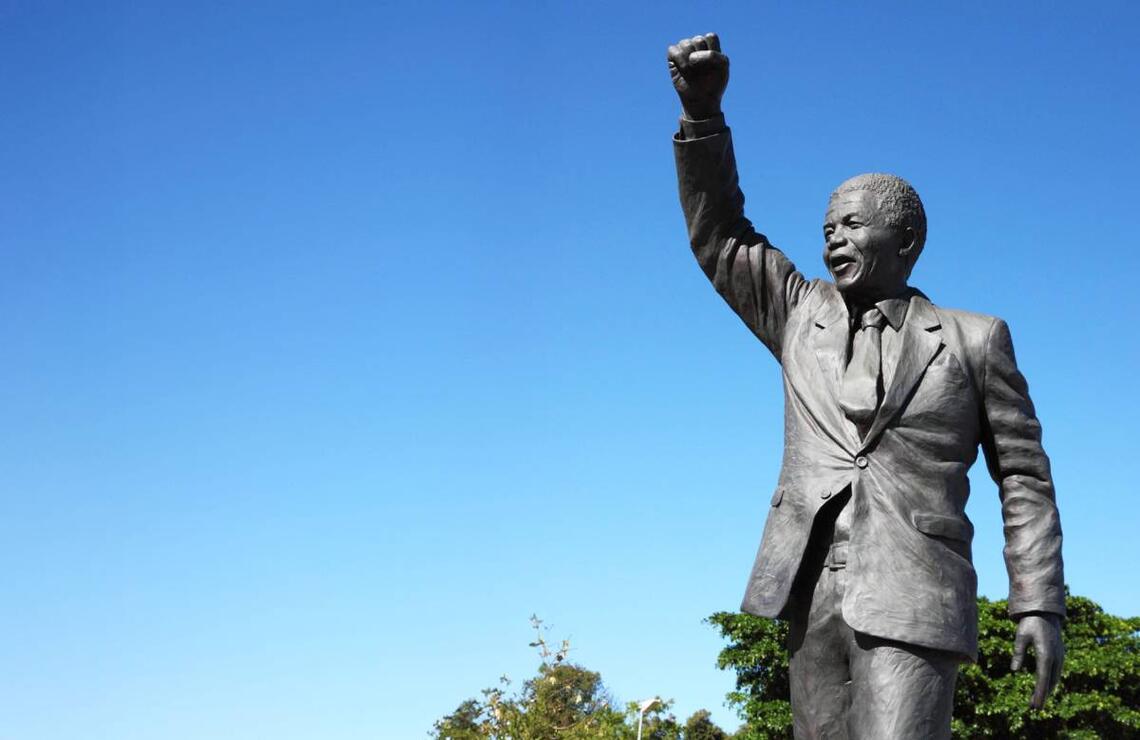
South Africa
facing the Trump storm
Encouraged by South African-born Elon Musk, the US president is putting maximum pressure on the rainbow nation. His rhetoric is aligned with that of the extreme right-wing Afrikaners and the interests of Israel, an ally. It’s a message to all those who might be tempted to pursue policies that go against Washington's interests.
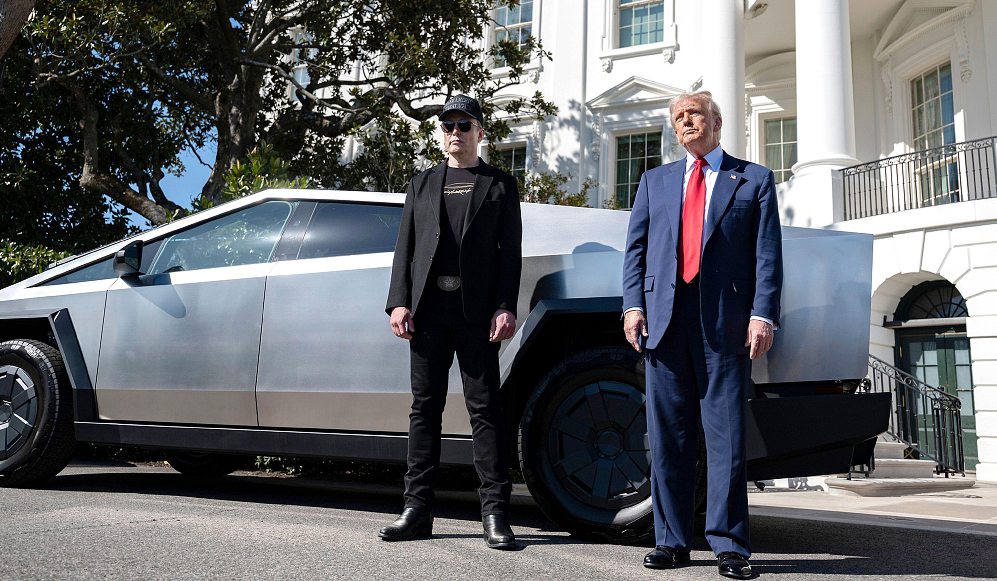
As soon as Donald Trump was sworn in on 20 January, the suspension of the US Agency for International Development (USAID) left South Africa reeling from the brutality of the president and his special adviser Elon Musk, who was born and raised in Pretoria during the apartheid era. Through its PEPFAR (President's Emergency Plan for AIDS Relief) programme launched in 2003, USAID contributes 17% of South Africa's budget for HIV prevention, in a country where nearly 5 million people are living with antiretroviral treatment. But as the end of USAID funding will impact the entire continent, the ‘rainbow nation’ didn’t take it personally...
SA AMBASSADOR’S EXPULSION – A TURNING POINT
On 14 March, 62-year-old Ambassador Ebrahim Rasool, who had just taken up his post in Washington, participated in an online conference organised by a South African think tank during which he said: “Donald Trump has launched a supremacist attack on governments at home and abroad.” It’s difficult to disagree: Vice President J.D. Vance, who was in Germany in February just before the elections, for example, openly supported the far-right AFD party... However, Rasool, an experienced diplomat who served as ambassador under Barack Obama, should have kept his thoughts to himself. Especially since this ANC veteran was already in the US administration’s crosshairs, mainly for his open support for Hamas (on his public Facebook page is a photo of a Palestinian scarf autographed by Ismail Haniyeh, former leader of the terrorist organisation...).
The Trump administration's reaction was swift: a few hours after the conference, Secretary of State Marco Rubio declared the ambassador persona non grata and described him as a ‘racist politician who hates America and the president’. Rasool was given 72 hours to leave the country... Clearly, the Trump administration used his reckless statements as a pretext to engage in a showdown with South Africa: Trump, a staunch ally of the Israeli Prime Minister, has not taken kindly to the continent's leading power and member of the BRICS group taking Benjamin Netanyahu to the International Court of Justice (ICJ) on charges of genocide in Gaza.
In February, Rubio snubbed an interministerial meeting in Johannesburg to prepare for the G20 summit, which will take place in South Africa in November. And to make the message even clearer, Trump’s new ambassador to Pretoria, Leo Brent Bozell III, is a 69-year-old far-right activist with no diplomatic skills or knowledge of Africa. He’s also a fervent supporter of Israel and has dedicated his life to tracking down ‘progressive bias’ in the American media. One of his sons was convicted for his participation in the 6 January 2021 assault on the Capitol. The dialogue between such a figure and South African leaders promises to be tense.
Since the days of the struggle against apartheid, the African National Congress (ANC) has supported the Palestinian cause. In the 1970s and 1980s, the ANC was supported militarily by the Soviet Union and Cuba, and considered the Palestine Liberation Organisation (PLO) and the Irish Republican Army (IRA) as ‘brothers in arms’. South African diplomacy remains tied to this legacy: it strongly supports the Palestinians and sides with Moscow in the Ukrainian conflict. Even though the Islamists of Hamas profess an ideology far removed from that of Yasser Arafat, and even though Vladimir Putin's oligarchic and ultra-capitalist Russia has little in common with the communist USSR, Washington seems determined to force Pretoria to change its diplomatic course.
THE RACIST ‘WHITE GENOCIDE’ MYTH
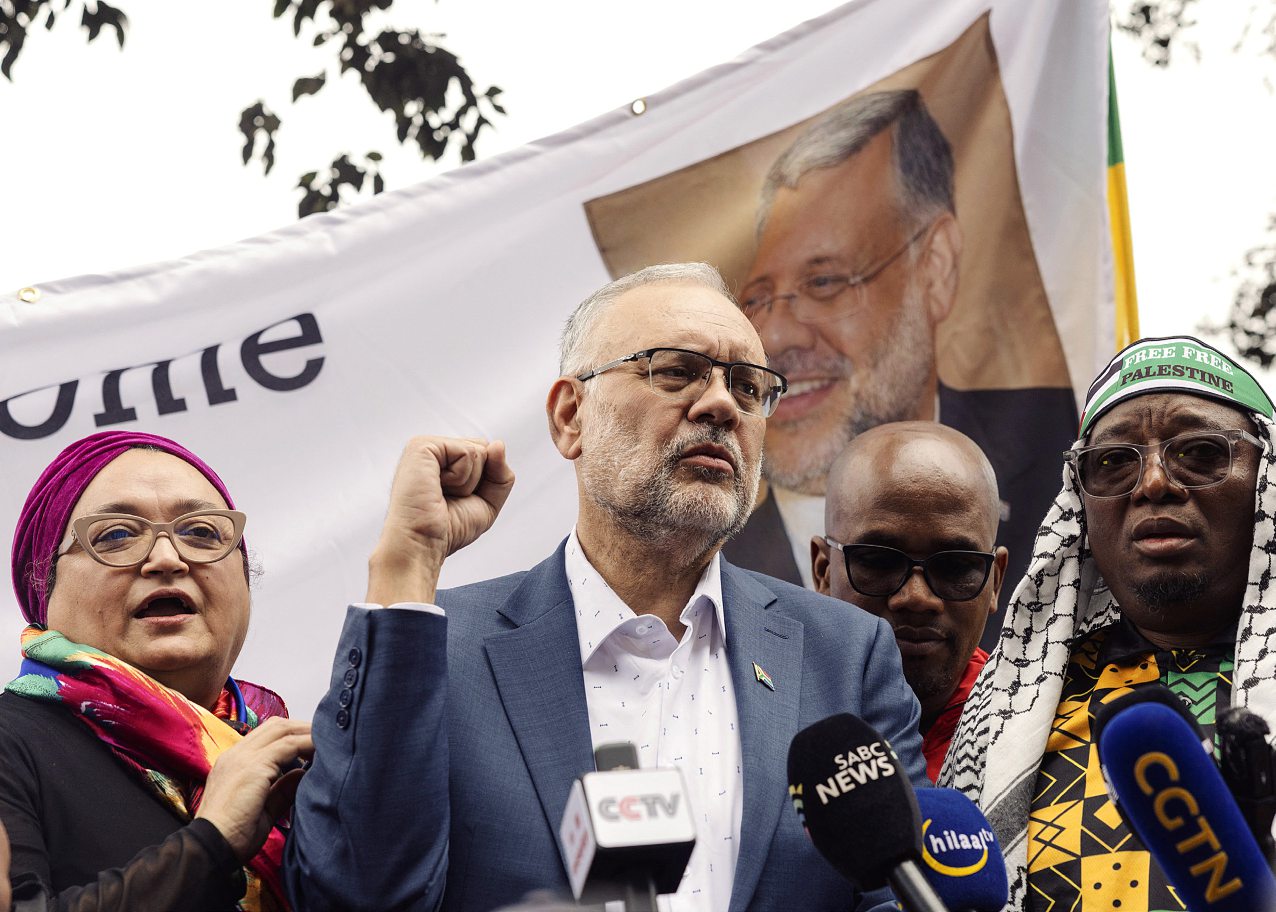
Equally worrying is that, in order to undermine the moral legitimacy that South Africa has enjoyed since triumphing over apartheid undoubtedly one of the most inhumane political regimes of the 20th century Trump and his administration are unflinchingly parroting the arguments of the Afrikaner far right. The US president has even said he is prepared to welcome white South Africans as ‘refugees’ and offer them ‘safety’, accusing South Africa of ‘mistreating’ them. He endorses the racist Afrikaner myth of a white genocide: since the end of apartheid, the murders of white farmers have been exploited by those nostalgic for segregation and relayed on social media by far-right activists in Europe and the United States. With all due respect to Trump and his ilk, the theory that murders disproportionately target white farmers does not stand up to scrutiny: statistics show that crime affects the entire country which, outside of conflict zones, is the most violent country in the world, with approximately 27,000 homicides last year, or a ratio of 45 per 100,000 inhabitants (compared to an average of 9 per 100,000 in sub-Saharan Africa). Black and poor South Africans are also more vulnerable than wealthy whites, as they cannot afford security guards or burglar-proofed doors and windows. In the townships, being burgled, raped or murdered is a constant threat. However, these victims receive little media coverage.
Another statistical reality in South Africa, observed by the World Bank, is that black people (80% of the population) ‘still suffer from the structural effects of apartheid’, while white people (8-9%) ‘benefit from wealth accumulated over generations’. The agrarian issue is emblematic of this persistent inequality: in the early 19th century, settlers from the Cape region uprooted Africans from their lands. In 1913, the Natives Land Act legalised this dispossession: four million black farmers were forced to move to townships to work in the mines. With the fall of apartheid, the ANC promised to redistribute 30% of the land. But only 3% has since been bought back, often by party bigwigs... Today, three-quarters of the land remains in the hands of a few thousand white farmers, while millions of South Africans are crammed into slums. In 2017, a law was passed calling for the ‘expropriation without compensation’ of large estates, but the bill got bogged down in legal wrangling. The law passed last January, eagerly awaited for three decades by the majority of the population, finally aims to correct these abysmal disparities. Only unused land could be seized, in cases where no compromise can be reached between the owners and the state. The authorities have no intention of replicating in South Africa the disastrous land reform carried out by Robert Mugabe's regime in Zimbabwe in 2000, when thousands of white farmers were brutally expelled, causing an economic cataclysm from which Zimbabwe has never really recovered.
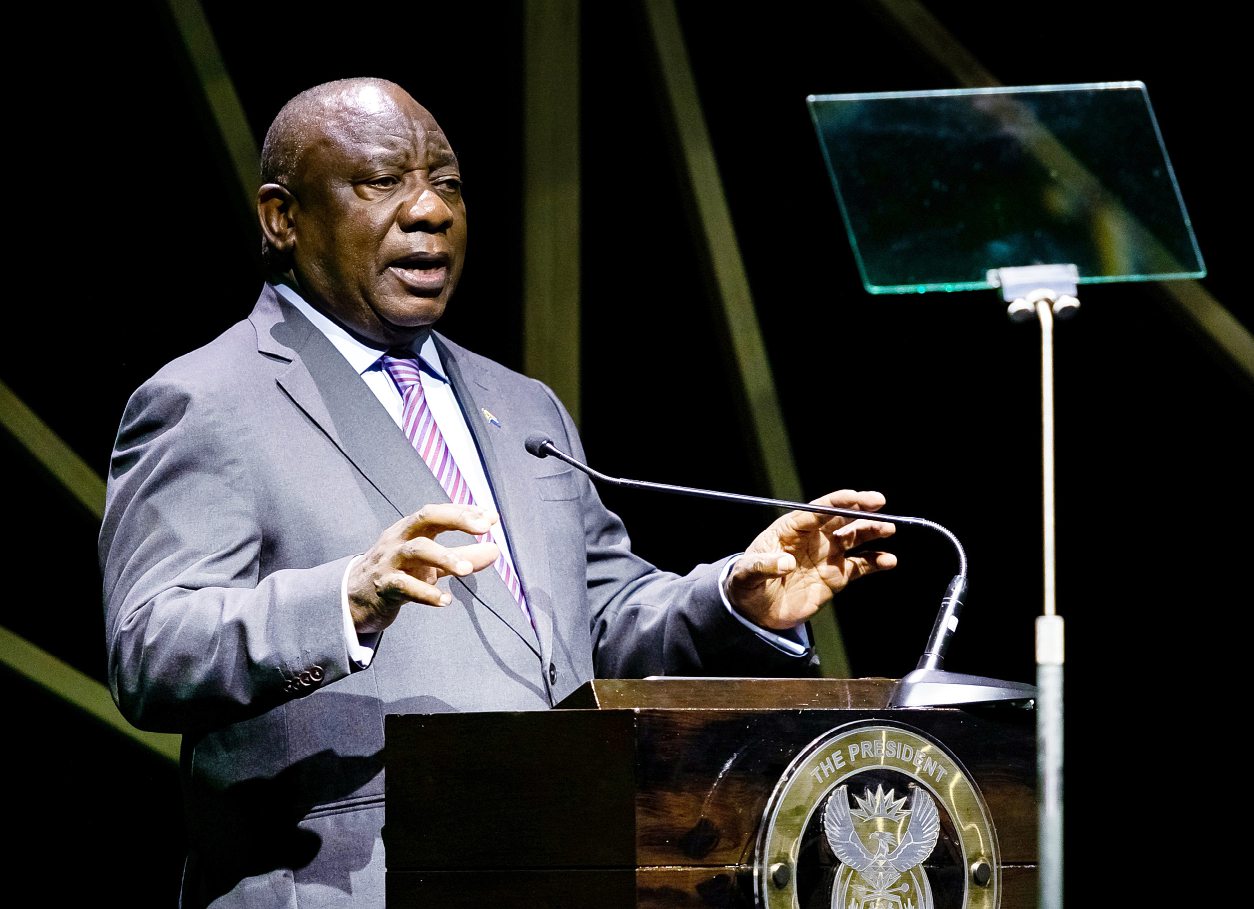
This is South Africa's reality: complex, nuanced, and shaped by three centuries of history. Elon Musk who made a controversial salute during the presidential inauguration obviously did not explain these nuances to Trump, whose ignorance about the continent is deplorable: the president of the world's leading power recently admitted that he had ‘never heard of’ the kingdom of Lesotho. Ten days after the law was passed, Trump accused South Africa of ‘confiscating’ land and announced that, in retaliation, he would stop ‘all funding’ to the rainbow nation. Cyril Ramaphosa calmly pointed out that the law is ‘not an instrument of confiscation, but a legal procedure guaranteeing fair and equitable access to land, in accordance with the Constitution’. Even the Democratic Alliance (DA), the ANC's liberal partner in the Government of National Unity (GNU), denied Trump's claims: “This is not the reality,” said its leader John Steenhuisen, who is opposed to the law and critical of the ANC's foreign policy. Impervious to facts, Trump prefers to listen to his technocratic sidekick who calls the land law ‘openly racist’ and Afriforum, a far-right Afrikaner association that claims to have 315,000 members (less than 10% of South Africa's 4.6 million white population). The president also basked in the praise of the few hundred Afrikaners who demonstrated on 15 February in front of the US embassy in Pretoria. A spokesperson for Ramaphosa lamented ‘the impact of misinformation and deliberate distortions’ on Washington's policy. Trump, who has promised to deport 11 million Latin American migrants, many of whom are essential to the US economy, is now offering to take in white South Africans. On Thursday 20 March, the US embassy in Pretoria said it had received a list of ‘more than 67,000 interested people’ from the South African Chamber of Commerce in the US.
TRADE WITH THE US
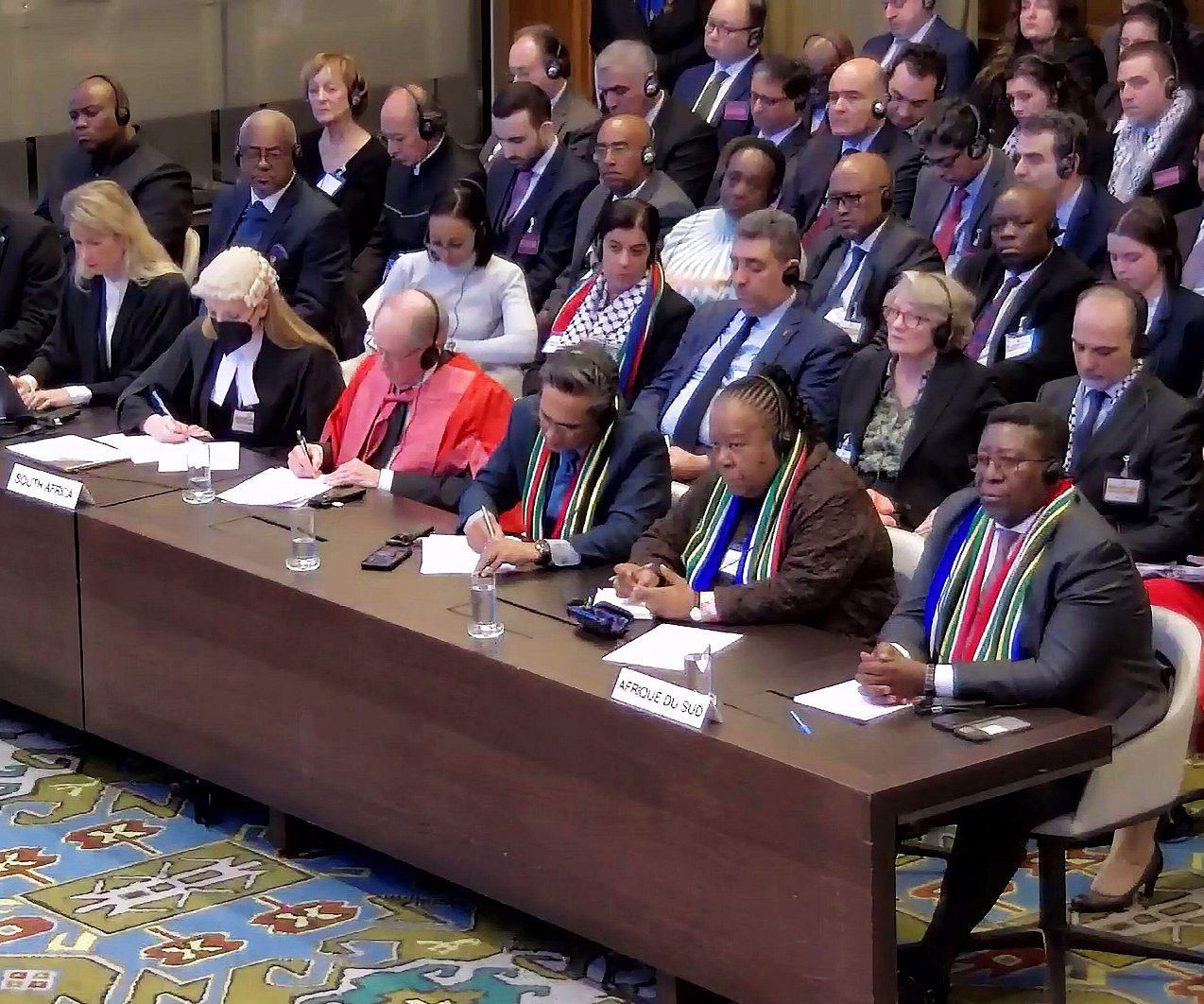
Ramaphosa must now face this new reality: a racist US president, under the influence of someone nostalgic for apartheid, who is determined to force South Africa to change its domestic and foreign policies. In February, the Minister of Energy and Mineral Resources, Gwede Mantashe, suggested at the Cape Town Mining Indaba that South Africa should stop supplying minerals to the United States (South Africa holds 80% of the world's platinum reserves). However, it is now time to tone down the rhetoric: ‘The United States remains a strategic political and trading partner for South Africa,’ commented the South African president after the ambassador was expelled.
The United States is South Africa's second largest customer (7.5% of exports) and second largest supplier (8.6% of imports), behind China and ahead of Germany. The country is Africa's leading exporter excluding petroleum products to the US: Pretoria benefits fully from AGOA, the African Growth and Opportunity Act which, since 2000, has allowed exports from 25 African countries to enter the US market duty-free. This competitive advantage led several car manufacturers (BMW, VW, Ford, Toyota, etc.) to set up factories in South Africa in the 2000s to manufacture vehicles for export to the US, worth $1.6 billion in 2022. However, AGOA is due to be renewed, or not, this year. Its suspension would be ‘devastating’ for South African industry, said Billy Tom, president of the automotive industry employers‘ organisation (Naamsa), in January. His colleague Dylan Petzer, vice-president of the tyre manufacturers’ association (TEPA), sees ‘all the ingredients for a societal disaster’. Aware of the stakes and dangers, Ramaphosa reiterated that ‘improving relations with the US is [his] priority’, calling on everyone to shoulder their responsibilities and expressing concern about the demonstrations planned by his own party, the ANC, to mark the return of the disgraced ambassador on Sunday 23 March... ’ The US holds all the cards, warns South African intellectual Adam Habib on X. If sanctions are imposed, the price to be paid by South African citizens will be significant.’ He believes that South Africa is not the only country concerned: ‘The humiliating manner’ in which Rasool was dismissed is, in his view, ‘a warning message to all developing countries’ that dare to ‘oppose American interests.’ ‘We risk having to abandon our independent foreign policy,’ the academic continues. ‘And Trump will respond by demanding even more concessions.’
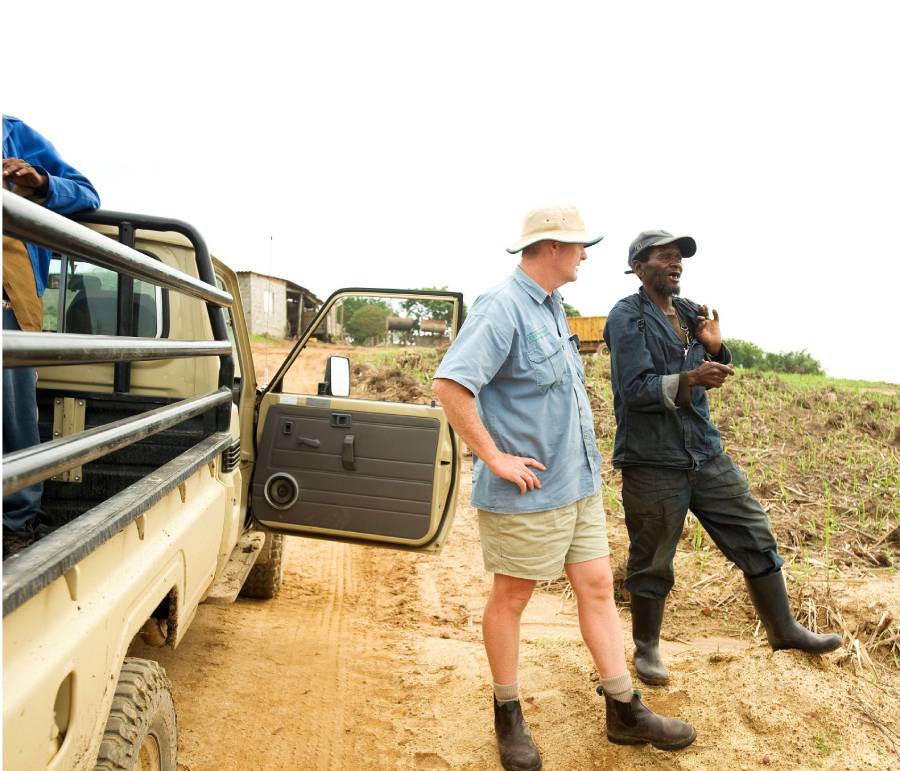
The pretext for Rasool's expulsion was his statement on the global ‘supremacist attack’ led by the White House. It is clear that the diplomat's dismissal confirms his analysis: ‘Trump is sending a signal to white people everywhere that he will use his power to advance their interests, regardless of the facts,’ American historian Khalil Gibran Muhammad, professor of African-American studies at Princeton University, told the New York Times on 15 March. Trump's assault on South Africa is also a message to his electoral base in the US: the working-class, poorly educated, conspiracy-minded, often racist, socially disenfranchised ‘rednecks’ who are concerned about the rise of minorities, which they perceive as an existential threat.